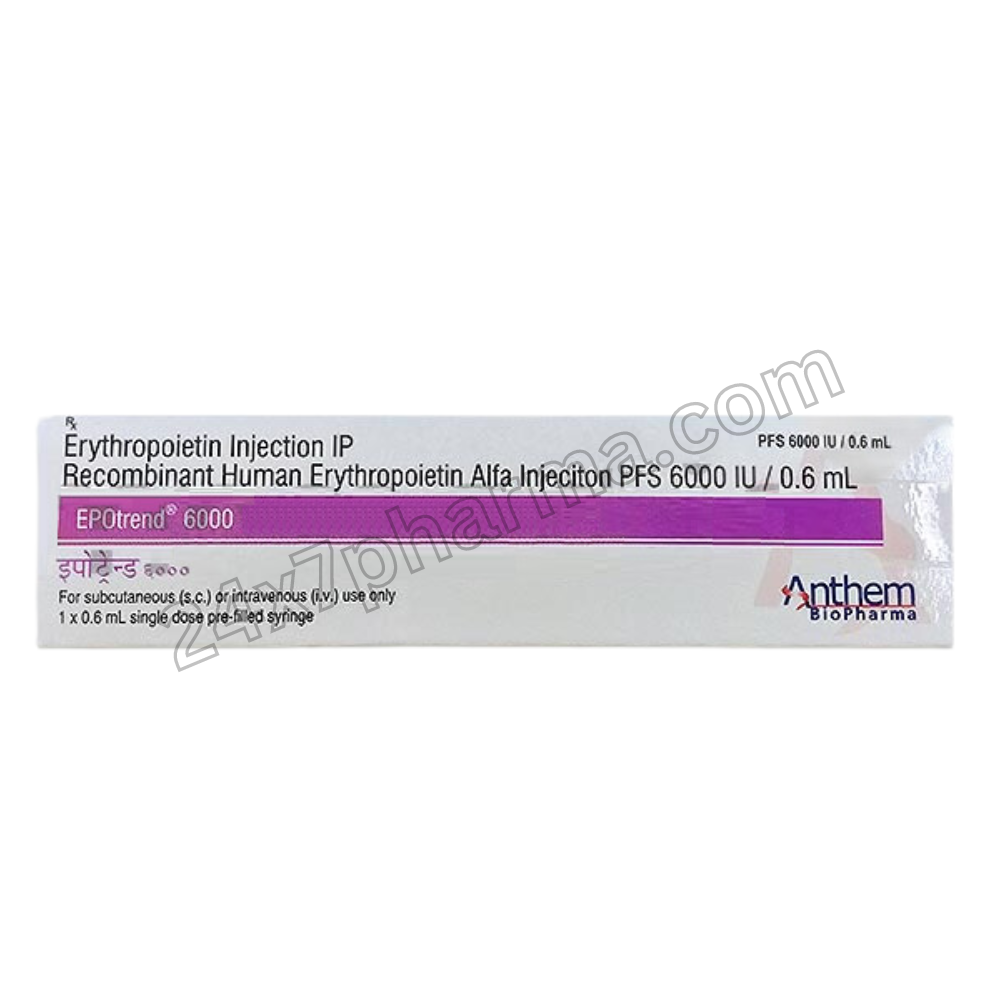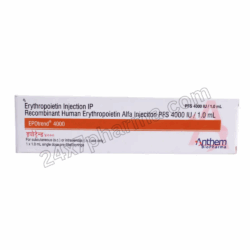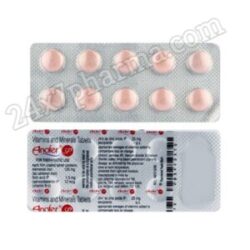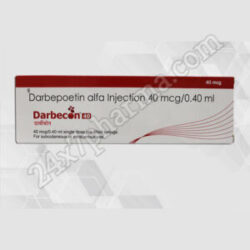What is Epotrend 6000 IU Injection?
Epotrend 6000 IU Injection is a pharmaceutical product containing erythropoietin, a hormone responsible for stimulating red blood cell production in the body. It is commonly prescribed to treat anemia, particularly in individuals with chronic kidney disease, cancer patients undergoing chemotherapy, or individuals undergoing certain types of surgeries. Epotrend works by mimicking the body’s natural erythropoietin, encouraging the bone marrow to produce more red blood cells. By increasing red blood cell count, the injection helps alleviate the symptoms of anemia, such as fatigue, shortness of breath, and weakness.
How Does Epotrend 6000 IU Injection Work?
Epotrend 6000 IU Injection works by targeting the body’s bone marrow, where blood cells are produced. Erythropoietin, the active ingredient in the injection, is a glycoprotein hormone primarily produced by the kidneys. When the body detects a low oxygen level, the kidneys release erythropoietin, which signals the bone marrow to increase the production of red blood cells.
In patients with anemia, particularly those suffering from chronic kidney disease, cancer, or those undergoing dialysis, the body might not produce enough erythropoietin, leading to a low red blood cell count. Epotrend 6000 IU Injection supplements the body’s erythropoietin levels, restoring the balance and encouraging the production of red blood cells. As a result, oxygen transport in the body improves, alleviating symptoms such as fatigue, dizziness, and breathlessness caused by anemia.
Uses of Epotrend 6000 IU Injection
Epotrend 6000 IU Injection is primarily used for treating various types of anemia that result from different medical conditions, including:
- Anemia due to Chronic Kidney Disease: Patients with chronic kidney disease often suffer from low erythropoietin levels, which leads to anemia. Epotrend helps stimulate red blood cell production in these patients.
- Chemotherapy-induced Anemia: Patients undergoing chemotherapy may develop anemia as a side effect. Epotrend is administered to improve their red blood cell count and alleviate related symptoms.
- Anemia in Premature Babies: Epotrend may be used in premature infants who are born with low red blood cell counts and are at risk of anemia.
- Surgery-related Anemia: Epotrend 6000 IU Injection can also be used to increase red blood cell levels in patients scheduled for major surgeries, reducing the need for blood transfusions.
- HIV-related Anemia: Patients undergoing certain treatments for HIV may develop anemia. Epotrend is used in such cases to manage their red blood cell levels.
Other Dosages
Epotrend injections come in different dosages to cater to various patient needs and treatment plans.
Side Effects
Like all medications, Epotrend 6000 IU Injection can cause side effects, though not everyone will experience them. Common side effects include:
- High Blood Pressure (Hypertension): Epotrend may cause an increase in blood pressure, which could become severe if not monitored properly.
- Headaches: Patients may experience frequent headaches, especially if their blood pressure is elevated.
- Blood Clot Formation (Thrombosis): Some patients, especially those receiving high doses, may be at risk of developing blood clots, which can cause complications like deep vein thrombosis or pulmonary embolism.
- Allergic Reactions: Rarely, individuals might experience allergic reactions such as skin rashes, itching, swelling, or breathing difficulties.
- Seizures: Although uncommon, there have been reports of seizures in patients using erythropoietin-stimulating agents like Epotrend.
- Joint and Bone Pain: Some individuals may experience discomfort or pain in their joints or bones after receiving the injection.
Warnings & Precautions
Before using Epotrend 6000 IU Injection, certain precautions need to be taken:
- Monitor Blood Pressure: Patients receiving Epotrend must regularly monitor their blood pressure, as the medication can cause hypertension. Uncontrolled high blood pressure could lead to severe complications, such as stroke or heart failure.
- Risk of Blood Clots: Epotrend can increase the risk of blood clots, particularly in patients who are already at risk due to factors like prolonged immobility or surgery. Doctors may monitor patients closely for any signs of clotting.
- Iron Deficiency: Epotrend works more effectively in the presence of sufficient iron levels. Patients might need iron supplements to ensure optimal response to the treatment.
- Use in Cancer Patients: Epotrend should be used cautiously in cancer patients, as it may accelerate tumor growth in some cases. Therefore, the decision to use this medication should be weighed carefully by the treating oncologist.
- Allergic Reactions: Patients with a known hypersensitivity to erythropoietin or any other ingredient in the formulation should not use Epotrend.
- Seizure Risk: If a patient has a history of seizures or neurological conditions, Epotrend should be used cautiously, and patients should be monitored for any signs of seizure activity.
- Pregnancy and Breastfeeding: There is limited data on the safety of Epotrend during pregnancy or breastfeeding. Pregnant or nursing mothers should consult their doctors before using this medication.
FAQs for Epotrend
Q1. How long does it take for Epotrend to show results?
Ans: It may take a few weeks for the effects of Epotrend to become noticeable, as the body gradually increases red blood cell production. Regular blood tests will help monitor progress.
Q2. Can I use Epotrend while on other medications?
Ans: Epotrend may interact with certain medications, so it’s important to inform your healthcare provider about any other drugs you are taking. This will help prevent any potential adverse reactions or drug interactions.









